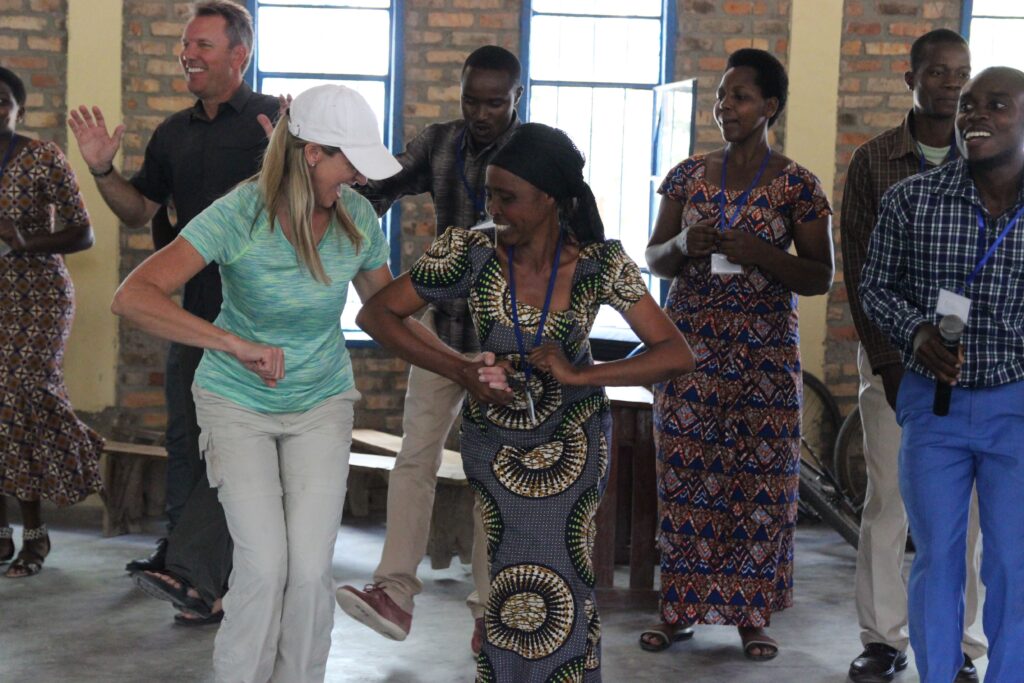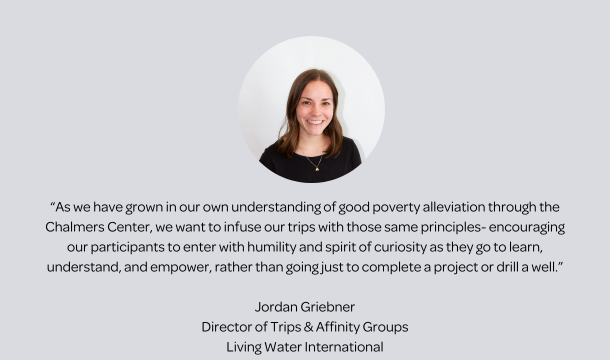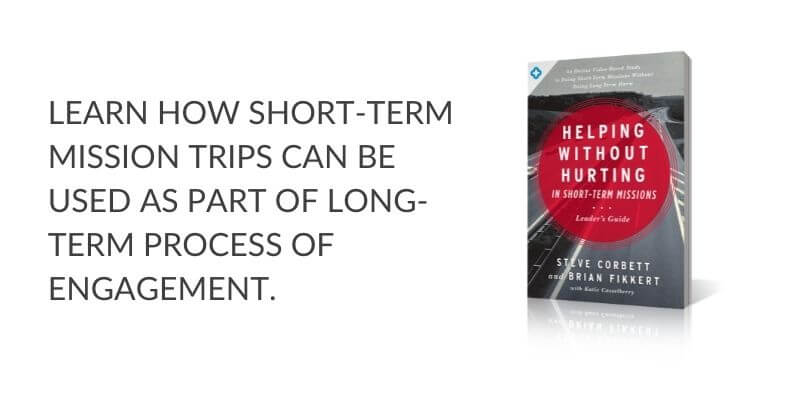“What Can We Learn?” – Living Water International’s New Approach to Short-Term Missions
“We used to send teams into communities asking, ‘How can we help?’ Now, influenced by the Chalmers Center’s insights, we enter with a different question: ‘What can we learn?’ That shift has been profound, allowing us to engage in ways that honor the dignity, strengths, and leadership of the communities we serve.”
– Jonathan Wiles, Chief Operating Officer, Living Water International
In 1990, Living Water International was founded with a simple yet powerful response to the global water crisis: inviting the global Christian community to participate in providing access to clean water by drilling borehole wells and installing hand pumps to provide immediate access to clean water.
In the early years, they focused on sending professional engineers to work with their partners in the field, but eventually short-term mission teams also began to play a key role as teams traveled to communities to help drill wells. These experiences left a lasting impact as participants felt a tangible sense of contribution and often became passionate advocates for Living Water’s mission in their churches and communities.
A Shift Towards Sustainable Solutions
However, as Living Water grew and deepened its understanding of the communities it served, the need for change became clear. By 2019, they began shifting from a solely well-centered approach to more sustainable, community-driven solutions. During this transition, their staff read When Helping Hurts and began applying its principles to their work.
New technology, such as piped water systems, allowed them to serve larger populations more efficiently—each system providing water to as many people as 20 hand pumps while bringing clean water directly to homes. Yet this shift wasn’t just about technology. Living Water also introduced initiatives to mobilize local churches and communities, incorporating hygiene and sanitation training to improve long-term health. Community participation became the foundation of their projects. Water committees were established to maintain and protect water points, ensuring local ownership and sustainability. This approach aligned with Chalmers’ philosophy of empowering local leaders and fostering long-term development rather than quick fixes.
Reimagining Short-Term Mission Trips
As Living Water embraced this new model, they also reimagined their short-term mission trips. The focus shifted from hands-on construction projects to learning, relationship-building, and community engagement. To support this transformation, they revamped their pre-trip preparation, integrating Helping without Hurting principles into team materials, including videos, devotionals, and leader guides.
Participants learn that poverty is a shared experience—that we are all broken and all experience poverty—and that every community has dignity and assets. Rather than primarily seeing their need, they recognize community members as divine image-bearers who are resilient and full of potential. This foundation fosters humility and a learning posture, encouraging deeper connections. Instead of asking, “What can we do for them?” participants begin to ask, “What can we learn from them?”

At first, the Living Water team wondered if trip participants—accustomed to hands-on projects—would find the same sense of purpose in this new approach. But the impact has been profound. Participants return not just with stories of what they built, but with insights into the wisdom and resilience of the communities they visited. One team member shared how learning about water management from local leaders reshaped their understanding of poverty and development. They realized their role wasn’t to fix, but to listen, learn, and encourage mutual growth.
By God’s grace, Living Water Trips are no longer measured by the number of wells drilled or pipes laid, but by the relationships built and the transformation experienced by all involved.




